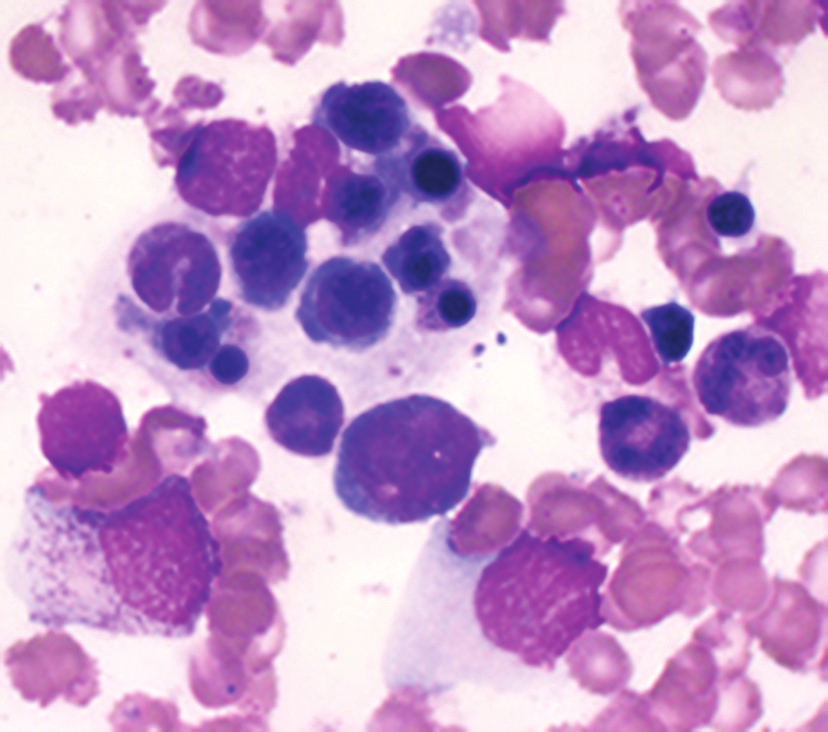Source: Cincinnati Children's Hospital Medical Center Oct 02, 2018 6 years, 6 months, 3 weeks, 3 days, 13 hours, 57 minutes ago
Physicians who specialize in a devastating and aggressive immune disorder called hemophagocytic lymphohistiocytosis (HLH) report in a new study that extra care should be taken to ensure an HLH diagnosis doesn't obscure possible underlying cancers.
Because HLH is dangerously aggressive in its progression and attack on vital organs—often causing death—
doctors frequently pursue immediate treatment for the immune disorder after a diagnosis.But researchers at the Cincinnati Children's HLH Center of Excellence caution in the journal
Pediatric Blood & Cancer that expediting HLH treatment may miss underlying malignancies that could end up being fatal to the patient.
"Our study found several cases where HLH diagnoses that fulfilled current criteria obscured the diagnosis of underlying malignancies. This delayed curative therapy for the cancers," said Ashish Kumar, MD, Ph.D., of the Cincinnati
Children's Cancer and Blood Diseases Institute. "These issues can be remedied by using alternative and improved diagnostic techniques to also look for underlying malignancy prior to administering HLH therapy."
Although earlier diagnostic technologies for cancer have required waiting for genetic testing, study authors recommend speeding up diagnosis with some newer technologies now available. One newer option highlighted by the study is flow cytometry based immunological assays—a cell-analysis technique that can provide useful diagnostic results in a couple days.
Abnormal Immune Response
HLH causes abnormally strong immune responses that attack vital organs and other healthy tissues. There are two types: primary HLH triggered by hereditary genetic defects in immune cells and secondary HLH fueled by infections, autoimmune disorders, or malignancies. About half of secondary HLH cases in adults are associated with malignancy.
Although previous studies estimate that 10 percent of children with secondary HLH have an associated malignancy, Kumar and his research colleagues suggest it may be higher. Their study involved close evaluation of nine patients diagnosed with HLH between the ages of 8 days to 30 years. Seven of the patients had been referred to Cincinnati Children's after their HLH diagnosis.
The diagnoses were based on the patients meeting current diagnostic criteria for the disease. Further investigations by physicians at Cincinnati Children's revealed that all but one of the nine patients had an underlying lymphoma, or cancer of the lymphatic system, and one patient had AML (acute myeloid leukemia).
By the time the malignancies were discovered, only two of the nine patients were able to receive full doses of chemotherapy because of infections and/or organ dysfunction, the researchers write. Seven of the patients died from multi-organ failure with active malignancies still present. Two patients who were able to receive full-doses of chemotherapy survive with no evidence of disease, according to the researchers.
Understanding Limitations
HLH is a difficult to diagnose early and can hide behind a maze of contradictory
symptoms. This often results in misdiagnosis. The only curative therapy for primary HLH is bone marrow transplant, a high-risk procedure that isn't suitable for all patients. Standardized diagnostic criteria for HLH were adopted in 2004 by the Histiocyte Society to help enhance detection of the disease.
Standard recommended treatment is the same for primary and secondary HLH, according to Kumar. Given the disease's aggressiveness nature and impact, guidelines recommend that treatment for HLH begin before determining if the disease is primary or secondary. The current study suggests this approach could lead to a missed cancer diagnosis.
"The cases in this study highlight the importance of understanding there are limitations to current HLH diagnosis criteria, especially in detecting HLH that is associated with malignancy.," said Kumar.
The HLH Center of Excellence works to refine and improve diagnosis and treatment for the complex disease. The center is now considered a leading referral center for the immune disorder.
Kumar said one of his goals is to spread awareness with other physicians about the new study's findings, as well as new diagnostic and treatment methods. In the meantime, the research team continues to analyze HLH cases and obtain more data about its biology and progression.
Arun Gurunathan et al, Limitations of HLH-2004 criteria in distinguishing malignancy-associated hemophagocytic lymphohistiocytosis,
Pediatric Blood & Cancer (2018).
DOI: 10.1002/pbc.27400 